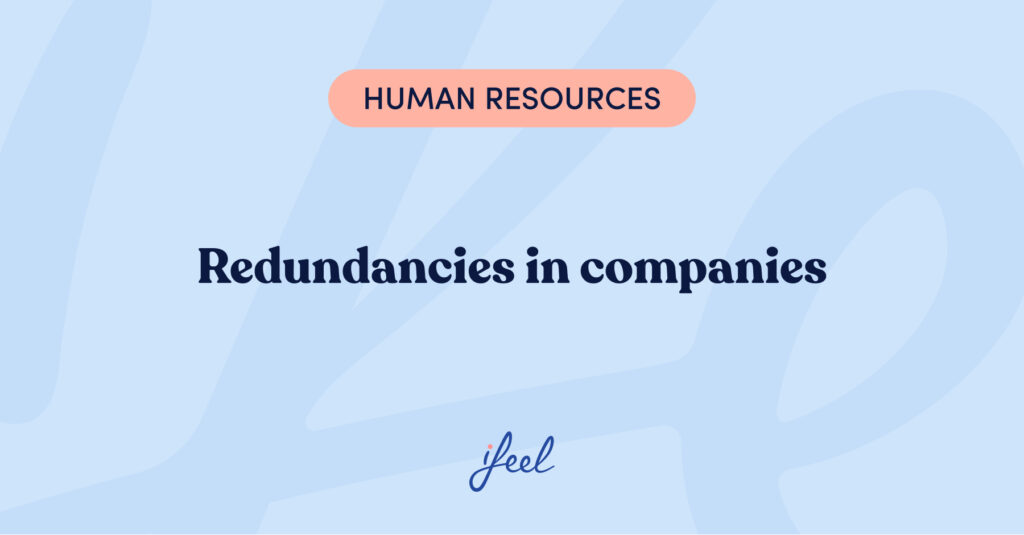In the Human Resources field, one of the most difficult and delicate responsibilities is knowing how to manage redundancies in companies. While it is an unavoidable reality for any organisation, it is crucial to approach this process with sensitivity and empathy, both for the employees affected and for those who have to implement the decision.
These days, we have often heard the term “massive layoffs“, especially observed in technology companies, resulting from financial obstacles such as inflation, rising financial costs, or indebtedness. Such obstacles to growth have forced companies to take drastic measures such as large job cuts as a strategy to mitigate the economic damage.
Of course, this action brings with it multiple consequences for both the company and the employees, as well as for the team leaders who must manage the residual damage. These include:
| The consequences of not knowing how to manage redundancies in companies | |
| For the company | – Due to major downsizing, team leaders must manage large workloads with smaller teams. |
| For employees | – It can affect workers’ mental health and levels of well-being. |
| For leaders and managers | – As a result of major downsizing, team leaders are forced to manage large workloads with smaller teams. |
In this context, HR departments have a great responsibility to face: to learn how to manage redundancies in companies efficiently and responsibly in order to minimise the negative impact on the affected workers and the organisation.
How to manage redundancies in companies
The best way to handle this difficult situation is to have clear planning and to equip HR staff with skills and strategies that will enable them to take a proactive approach to managing redundancies in companies. This requires the following:
1. Develop a clear plan and have transparent communication
To manage redundancies in companies, HR departments need to establish clear policies and procedures regarding dismissals. This involves defining objective criteria for termination of employment and transparently communicating these criteria to all employees. Open and honest communication throughout the process is essential to ensure trust and understanding between employees and management.

2. Consider legal and financial advice
When developing the strategy and managing redundancies in companies, leaders must rely on lawyers to ensure that the plan complies with the regulations, thereby reducing the risks associated with redundancies. Similarly, the company’s economic consequences should be considered, and financial advice should be sought to mitigate future damage.
3. Identifying alternatives
Layoffs should be a last resort. Therefore, before making a decision, alternative strategies should be analysed, such as, for example, reductions in working hours, temporary leave, and voluntary redundancy programmes, among others, to reduce the number of redundancies necessary. At the same time, this measure demonstrates the company’s commitment to reducing the negative impact of the strategies applied.
4. Provide emotional support and resources
Layoffs can have a significant emotional impact on affected employees, teams, and the overall work environment. Studies show that the most common psychological effects of redundancy include increased stress, feelings of insecurity, and failure, as well as a decrease in self-esteem and a deterioration in interpersonal relationships.
It is, therefore, important for human resources departments to offer emotional support and resources during this difficult period to facilitate this transition. Similarly, it is essential to design strategies to improve internal communication within the company, offering clear objectives to the remaining employees and encouraging open dialogue in order to work towards corporate wellbeing.
These strategies can include providing access to career counselling through ifeel’s mental well-being solutions, as well as Employee Assistance Programmes (EAPs) and resources that can help with job transition, such as career development workshops or outplacement services.
5. Remembering the importance of ethics, confidentiality, and respect
In order to manage redundancies in companies in the most professional manner possible, it is essential to maintain confidentiality and respect throughout the redundancy process. Affected employees must be treated with dignity and consideration, and their privacy must always be protected. Avoiding rumour-mongering and maintaining discretion around the details of redundancies helps to preserve morale and trust within the team.
What to do if you are an employee and there have been redundancies in your company?
If you find yourself facing redundancies in your company, it is understandable that you may feel anxious and worried about your employment future. It is important to remember that you are not alone and that there are resources available to help you cope, as well as professionals willing to provide you with the support you need.
Here are some actions you can consider:
- Disclose your concerns: If you have questions or concerns about layoffs, don’t hesitate to contact your supervisor or HR department for more information and guidance.
- Seek emotional support: Talk to trusted friends, family or colleagues about how you are feeling. You may also consider seeking professional support through counselling or therapy services, and suggest incorporating these services into your company to support current teams.
- Explore professional development opportunities: Use this time as an opportunity to reflect on your professional goals and skills. Investigate professional development options, such as training courses or mentoring programmes, that can help you advance your career.

Fostering mental well-being at work
At ifeel, we know that managing redundancies in companies effectively is a responsibility that requires sensitivity, empathy, and adequate resources to support affected employees. It is therefore important that companies recognise this reality and provide resources and support services to promote mental well-being in the workplace.
To support companies in this process, our team of expert workplace well-being psychologists has created a mental well-being solution for businesses that improves talent retention, reduces presenteeism, and combats employee stress.
With our mental well-being solution, your company’s HR managers can receive personalised, data-driven advice on improving mental health at work. In addition, this solution offers employees a 360° mental well-being service structured at different levels according to their needs. Try our solution now to see how it could help you.
We hope you found this article about redundancies in companies interesting. If you would like more information about our mental well-being solution for companies, simply request it, and we will contact your team as soon as possible.










